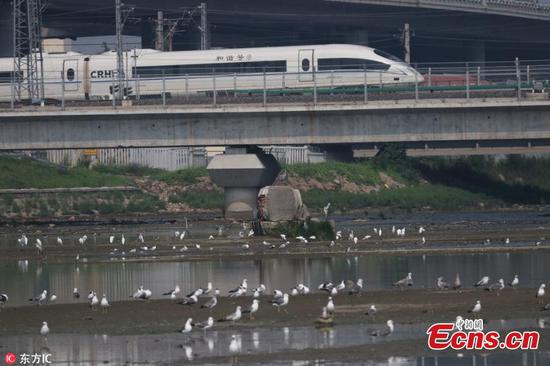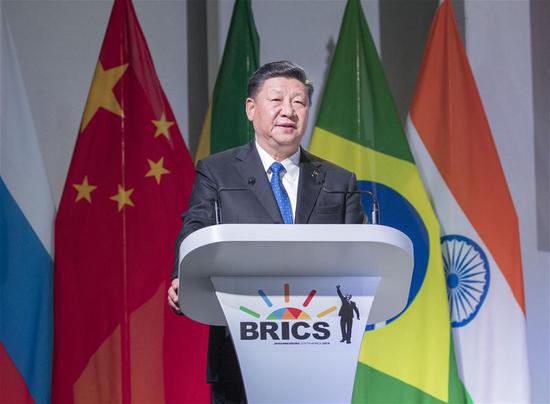The Chinese government has announced a raft of fiscal measures including more tax breaks and faster bond issuance to ensure stable economic development this year.
A more proactive fiscal policy will be pursued, according to an executive meeting of the State Council, China's cabinet, earlier this week.
Based on economic development goals defined by the central economic work conference and the government work report, China earmarked 20.98 trillion yuan (3.09 trillion U.S. dollars) for public expenditures in 2018, up 7.6 percent year on year. The fiscal deficit is expected to remain flat at 2.38 trillion yuan, and local government special bonds were set at 1.35 trillion yuan this year, up from 800 billion yuan in 2017.
Liu Wei, vice minister of finance, said at a press conference Thursday that the government, rather than using a strong stimulus, will focus on tax reductions and bring down business burdens when strengthening the policy support for the economy.
The following fiscal measures will be put in place before the end of 2018:
-- There will be a 65-billion-yuan tax cut to encourage businesses to spend more on R&D. The policy, currently applicable to small- and medium-sized tech firms, will cover all businesses by 2020.
-- Some companies in advanced manufacturing, the modern tertiary sector, and power grids will be refunded 113 billion yuan of value-added tax by the end of September.
-- Preparations will be sped up to launch a national financing guaranty fund to tackle financing difficulties of small firms. The investment in the first phase will be no less than 60 billion yuan. It will ensure 140 billion yuan of loans for about 150,000 small and micro firms each year.
-- Local governments will be allowed to issue 1.35 trillion yuan of special bonds at a faster pace, which will add more tangible progress on capital-hungry infrastructure projects.
-- The Ministry of Finance will allocate funds to help people set up businesses, facilitate the development of startups, and make favorable policies more available for small and micro companies.
To make the proactive fiscal policy more vigorous, the government will fine-tune its measures in accordance with the changing circumstances, and step up efforts in implementation, Liu said.


















































